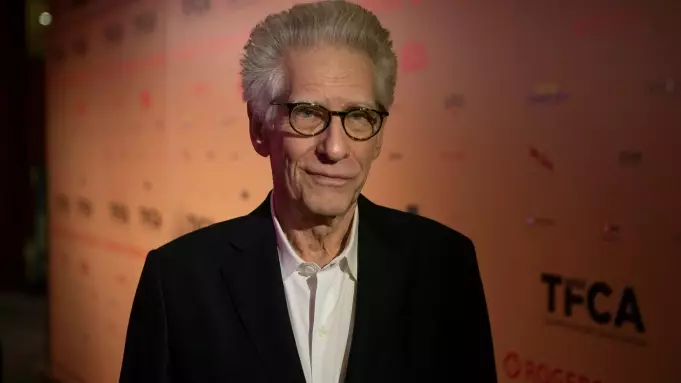The recent uproar surrounding the Oscar-nominated film *The Brutalist* has sparked intense debates on the use of artificial intelligence (AI) in filmmaking. Prominent director David Cronenberg has boldly stepped into the fray, defending the film and suggesting that there may be a calculated campaign to undermine it. Speaking at the London Soundtrack Festival alongside Howard Shore, Cronenberg couldn’t help but draw parallels to past controversies in the film industry, implying that jealousy and rivalry among Oscar contenders could be at play. Such allegations raise questions not only about artistic integrity but also about the evolving landscape of filmmaking in the age of technology.
AI: A Tool or a Threat?
Critics of AI integration in cinema often raise concerns about the authenticity of performances, fearing that reliance on technology may dilute the artistry inherent in film. Cronenberg’s assertion that AI is simply a new tool reflects a larger sentiment among progressive filmmakers who embrace innovation. He illuminates a significant truth: altering actors’ voices is nothing new in Hollywood. In fact, this practice has existed for decades, evidenced by his own use of voice modulation in *M. Butterfly*. Thus, the real crux of the matter lies not in whether AI is appropriate, but in how filmmakers can balance technology with human storytelling.
Understanding the Subtlety of AI Use
In *The Brutalist*, the Ukrainian company Respeecher’s AI technology was utilized to enhance Hungarian dialects, which can be notoriously difficult for non-native speakers to master. The film’s editor, Dávid Jancsó, argues that the use of AI is not a replacement for actor skill but rather an enhancement to make the final product more refined. Critics should consider whether the discussion around AI should be more about transparency and the methods used rather than outright rejection of its use. Understanding how AI can serve as a supportive tool for artists rather than an adversarial force is crucial for future cinematic endeavors.
Artistry Meets Technology—A Necessary Evolution
Cronenberg’s defense underscores an essential perspective: the film industry must evolve with the times, embracing new technologies while still valuing traditional craftsmanship. As filmmakers increasingly inhabit a digital ecosystem—where innovation coexists with artistry—open discussions about tools like AI should replace fear with curiosity. On a broader scale, this reflects society’s struggle to adapt to rapid advances in technology across all sectors. Openness and dialogue should reign supreme as we seek to navigate these complex waters rather than succumb to fear-driven narratives that aim to stifle creativity.
Art versus Commerce: A Polarizing Dilemma
As with many technological advances, the introduction of AI in film presents a polarizing dilemma between artistry and commerce. The tension Cronenberg hints at reflects the larger cultural struggle to embrace new methods while maintaining creative authenticity. With stakes as high as an Oscar nomination, it’s imperative that we interrogate the motivations behind any backlash against innovation. Are critics genuinely concerned with the integrity of artistic expression, or are they merely fending off competition? In moments like this, we must adopt a more nuanced approach to the discourse surrounding not just *The Brutalist*, but the future of all filmmaking in an AI-infused world.


Leave a Reply